|
In “Book Two” of Paternal Tyranny, Tarabotti argues that women should receive an education equal to that of men. She writes: "Do not scorn the quality of women’s intelligence, you malignant and evil-tongued men! Shut up in their rooms, denied access to books and teachers of any learning whatsoever, or any other grounding in letters, they cannot help being inept in making speeches and foolish in giving advice. Yours is the blame, for in your envy you deprive them of the means to acquire knowledge. As Socrates said in Plato’s Symposium, women do not lack intellect or a natural disposition to succeed in every understanding and every kind of learning equally to men." (99) In advocating for equal education, Tarabotti first establishes that intelligence is not an intrinsic quality. She argues that all learned men became intelligent only through receiving an education: “All philosophers and men of learning have gained their knowledge by studying; nobody was ever born with infused wisdom” (97). She references Plato’s Symposium to argue further that both men and women share a similar disposition to learn. In asserting that women share this disposition to learn with men, Tarabotti refutes the argument that women are naturally less intelligent than men and as a result, less worthy of an education. She argues that women do not “lack intellect or a natural disposition to succeed in every understanding and every kind of learning equally to men” (99). Instead, women lack access to the kind of education that make men intelligent. Tarabotti highlights the way men inhibit women from receiving a proper education. She describes the hypocrisy of men who “while reproaching women for stupidity…strive with all [their] power to bring them up and educate them as if they were witless and insensitive” (99). Tarabotti criticizes men who treat women as if they were naturally less intelligent and use this prejudice as reason for providing women with inadequate education or no education at all: “[Men] give [women] as a governess another woman, also unlettered, who can barely instruct them in the rudiments of readings, to say nothing of anything to do with philosophy, law, and theology. In short, they learn nothing but the ABC, and even this is poorly taught” (99). Tarabotti argues that even when a woman does receive an education, she receives her instruction from another uneducated woman. This cycle ensures that all women remain less intelligent than men. Thus, Tarabotti reframes the issue of women’s observed lesser intelligence as stemming from a man-made system and not from the nature of women themselves.
Throughout “Book Two,” Tarabotti establishes intelligence as an attribute only available to those who receive proper education and exposes men for creating a system of inadequate education for women so that they may maintain their power. --MP Source info: Paternal Tyranny. Edited and translated by Letizia Panizza. The University of Chicago Press, 2004. Image info: Standing Woman Holding a Scroll. Artist unknown. Italy, 16th century. Source: https://artvee.com/dl/standing-woman-holding-a-scroll
0 Comments
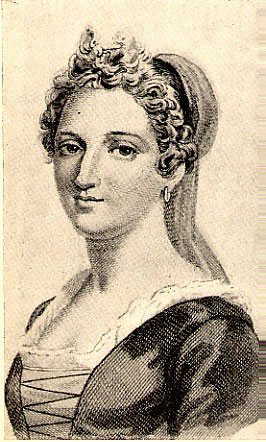 It is hard to ignore the amusing and explicit contempt employed by Marinella in her prose as she criticizes various male thinkers. Throughout The Nobility and Excellence of Women and the Defects and Vices of Men, Marinella often critiques Aristotle and his claim that women are, by nature, the inferior sex. In rebutting Aristotle, Marinella defends her natural philosophy and advocates for equal opportunity among the sexes. She writes, "But in our times there are few women who apply themselves to study or the military arts, since men, fearing to lose their authority and become women’s servants, often forbid them even to learn to read or write. Our good friend Aristotle states that women must obey men everywhere and in everything and not such for anything that takes them outside their houses. A foolish opinion and cruel, pedantic sentence from a fearful, tyrannical man. But we must excuse him, because, being a man, it is only natural he should desire the greatness and superiority of men and not of women. Plato, however, who was truly great and just, was far from imposing a forced and violent authority. He both desired and ordered women to practice the military arts, ride, wrestle and in short, to instruct themselves in the needs of the Republic… If [women] do not show their skills, it is because men do not allow them to practice them, since they are driven by obstinate ignorance, which persuades them that women are not capable of learning the things they do." (79-80) Marinella argues that, in order to maintain their authority, men do not allow women to receive an education or to practice the military arts. Out of fear, these men repress those, mainly women, who hold the potential to threaten their power. For Marinella, Aristotle serves as a prominent example of this “tyrannical man.” Marinella pits Aristotle against Plato “who was truly great and just.” Unlike Aristotle, according to Marinella, Plato rightly advocates for the training of women in various practices dominated by men such as riding, wrestling, and military arts. Any absence of skill or ability found among women in these fields results only from the lack of education and opportunities available to women. Marinella describes the circular nature of this phenomena as a self-fulfilling prophecy where men keep women from being educated and then become convinced that women cannot learn. According to Marinella, Aristotle’s endorsement of limiting women to household work and excluding them from schooling exposes the ignorance and injustices in his philosophy. Marinella also argues that Aristotle’s natural philosophy, which he uses to defend his anti-women views, fails upon further consideration. Both Marinella and Aristotle hold that a person’s bodily temperature says something about their character or nature. According to Marinella, however, Aristotle argues that men are hotter than women and therefore, more noble. She writes, “The good Aristotle, state[s] that women are less hot than men and therefore more imperfect and less noble. Oh what irrefutable and powerful reasoning! I now believe that Aristotle did not consider the workings of heat with a mature mind, nor what it signifies to be more or less hot, nor what good and bad effects derive from this” (130). Unlike Aristotle, Marinella argues that only moderate heat reflects a noble soul. “Excessive heat,” like that of men, “makes souls precipitous and unbridled” while “little and failing heat…is powerless for the soul’s operations” (130). Marinella declares that “women are cooler than men and thus nobler, and that if a man performs excellent deeds it is because his nature is similar to a woman’s, possessing temperate but not excessive heat” (131). As a defense of women as the superior sex, Marinella argues that Aristotle misunderstands the relationship between temperature and soul as the excessive heat of an individual exposes only the defects of their soul. If men are hotter than women as, according to Marinella, Aristotle believes they are, then they are inferior to women by nature. Not only does Marinella attack Aristotle’s misogyny in advocating for inequal opportunity among the sexes, she also highlights the failures of his natural philosophy in his attacks on the nature and temperature of women. Although decorated with colorful insults and bold sarcasm, Marinella’s arguments against Aristotle clearly reveal her expansive knowledge of thinkers like Plato and her own extensive natural philosophy. -MP Text source: The Nobility and Excellence of Women, and the Defects and Vices of Men. Edited and translated by Anne Dunhill, The University of Chicago Press, 1999.
First image info: Image taken from Maria Bandini Buti, Enciclopedia biografica e bibliografica italiana: poetesse e scrittrici (Roma, 1942), vol. 2, p. 10. Source: https://www.lib.uchicago.edu/efts/IWW/Portraits/HTML/A0190.html Second image info: Aristotle and his lover Phyllis. Hans Baldung Grien, 1515. http://www.ibiblio.org/wm/paint/auth/baldung/ On the second day of the dialogue, Fonte explicitly argues that women should receive an education. She writes,
Fonte claims two things here: first, that receiving an education leads to a virtuous life and second, that in withholding education from women, men commit both an ethical and epistemic injustice. With the former claim, Fonte works to rebut the belief held by men that says an educated woman becomes immoral. She argues that, in reality, without an education, “an ignorant person is far more liable to fall into err.” Fonte defends this argument by depicting the common undesirable and uneducated women. These women, such as the “illiterate maid servants,” the “peasant girls and plebeian women,” fold to their sexual desires and easily “give in to their lovers.” Without the opportunity to exercise their minds through reading and writing, these women become “gullible” to the persuasions of men and cannot defend themselves. According to Fonte, uneducated women lack the ability to reason and as a result, must depend on the word and direction of men. Of course, even educated women are subject to the “pricking of the senses,” but their intellect allows them to combat physical temptation. For Fonte, education is just “the pursuit of virtue.” Without schooling, then, women do not have the resources to become virtuous and as a result, they inevitably give into sexual relations.
Fonte’s argument highlights the way in which men have been counterproductive and ineffective in trying to make women more virtuous. Instead of providing them with the necessary tools to defend themselves against lustful desires, men leave them weak and vulnerable. Notice that Fonte does not argue against the belief that women are naturally perverse or driven by their bodily appetites. Instead, she uses this idea as a reason in favor of giving women an education. In this way, Fonte appeals to the beliefs of men. Still, she reveals how, in the name of keeping women from their natural vices, men have inhibited women from achieving a moral life. Fonte presents the characters in her dialogue as exemplary of the benefits of educating women. It is because these women “have read [their] cautionary tales and learnt [their] moral lessons” that they “developed a love for virtue.” Readers of the dialogue, then, can look to Fonte’s characters as proof that education and virtue go hand in hand. In this passage, Fonte argues that a woman can only fight her sexual inclinations through education and that men have wrongfully repressed women who wish to pursue virtue. --MP Image info: The Education of the Virgin Mary, illustrated by Giovanni Francesco Romanelli, Italian, published in Rome in 1630. Text source: The Worth of Women: Wherein Is Clearly Revealed Their Nobility and Superiority to Men. Edited and Translated by Virginia Cox, The University of Chicago Press, 1997. [Originally published on Facebook March 31, 2021]
Our last post on Nísia Floresta is from Opúsculo Humanitário, which is the same book from our first post, and is about women’s education. Here is the passage: XXVI (p.59 of the book; 69 of the digitized version) “The more ignorant a nation is, the easier it is for an absolute government to exercise its unlimited power over it. It is from that principle, so contrary to the progressive march of civilization, that most men are against making easier how women cultivate their spirit. However, this is a mistake that has been and always will be contrary to the prosperity of nations as well as is contrary to the domestic fortune of men. (…) Just as a paternal government is the most proper one to make people happy, and a properly cultivated intelligence of those nations is the best incentive for them to fulfill their duties, so too is moral education the safest guide to women. It is the pole star that indicates their north, in the fragile struggle in which they have to navigate as a ship in the sea, a sea seeded with abrolhos (pointed coral reefs), which is called life. The lack of a good education is the primary cause that contributes to women to lose their north, which is nothing else but morality, in the midst of the corruption of society. Always seeking to hold their intelligence, to weaken their senses, they make women unable to occupy, as they should to begin with, the care of purifying their heart; women would never advantageously achieve such thing if their intelligence remains without culture.” As we have seen, Nísia Floresta was against slavery because it is a form of oppression of one people over another. Such oppression can be instantiated in many varieties: it can manifest on basis of color (Europeans to Africans), political views (Italian liberals versus their government and Brazilian liberals versus the Empire), or culture (colonization over the First Natives). This passage shows us that Nísia thinks that lack of education could be another instantiation of oppression because it willingly hinders the moral development of human beings. Since men were “against making easier” for women to learn, men were willingly hindering women’s moral development. Therefore, men were oppressing women. Thus, Nísia finds a common ground between colonized First Natives, enslaved people and women: they were all devoid of education. Worse than that, they were deprived of education by the oppressor, whoever it be. Further, Nísia compares the political influence of an absolute government over an ignorant nation to the power of men over women. Such comparison allows us to consider despotic governments as oppressors too. Thus, we may say that Nísia was against a universal form of oppression, a form that can be instantiated differently. If such oppression is justified by color, we call Nísia an abolitionist; if it is justified by sex, we call her a feminist, and so forth… However, I cannot make something of “a paternal government is the most proper one to make people happy”. She seems to be listing kinds of “guides”. Moral education is “the safest guide” for women. Cultivated intelligence is “the safest guide” for a nation that seeks the fulfilment of its duties. A paternal government is “the safest guide” to make people happy. Was she defending paternal governments or was she just saying that it does not matter how bad a ruler is, if the ruler rules paternally, then the people will not care? If the latter, she may have said that ironically, criticizing paternal governments. __ Retrieved from: https://babel.hathitrust.org/cgi/pt?id=nyp.33433075997266... Original in Portuguese: “Quanto mais ignorante é um povo, tanto mais fácil é a um governo absoluto exercer sobre ele o seu ilimitado poder. É partindo deste princípio, tão contrário à marcha progressiva da civilização, que a maior parte dos homens se opõem a que se facilite à mulher os meios de cultivar o seu espírito. Porém, é este um erro, que foi e será sempre funesto à prosperidade das nações, como à ventura doméstica do homem. (...) Assim como um governo paternal é o mais próprio a fazer a felicidades dos povos, e a inteligência destes devidamente cultivada o melhor incentivo para o exato cumprimento de seus deveres; assim também a educação moral é o guia mais seguro da mulher, a estrela polar que lhe indica o norte, no frágil batel em que ela tem de navegar por esse mar semeado de abrolhos, a que se chama vida. A falta de uma boa educação é a causa capital, que contribui para que a mulher, no meio da corrupção da sociedade perca esse Norte, o qual não é outro mais que a moral. Procurando-se sempre prender-lhe a inteligência, enfraquecer-lhe os sentidos, inabilitam-na para ocupar-se, como devia, antes de tudo do cuidado de purificar o seu coração; o que nunca poderá ela vantajosamente conseguir se a sua inteligência permanecer sem cultura.” Translated by Matheus Iglessias Mazzochi -MM |
Authors
Jacinta Shrimpton is a PhD student in Philosophy at the University of Sydney. She is co-producer of the ENN New Voices podcast Archives
May 2024
Categories
All
|
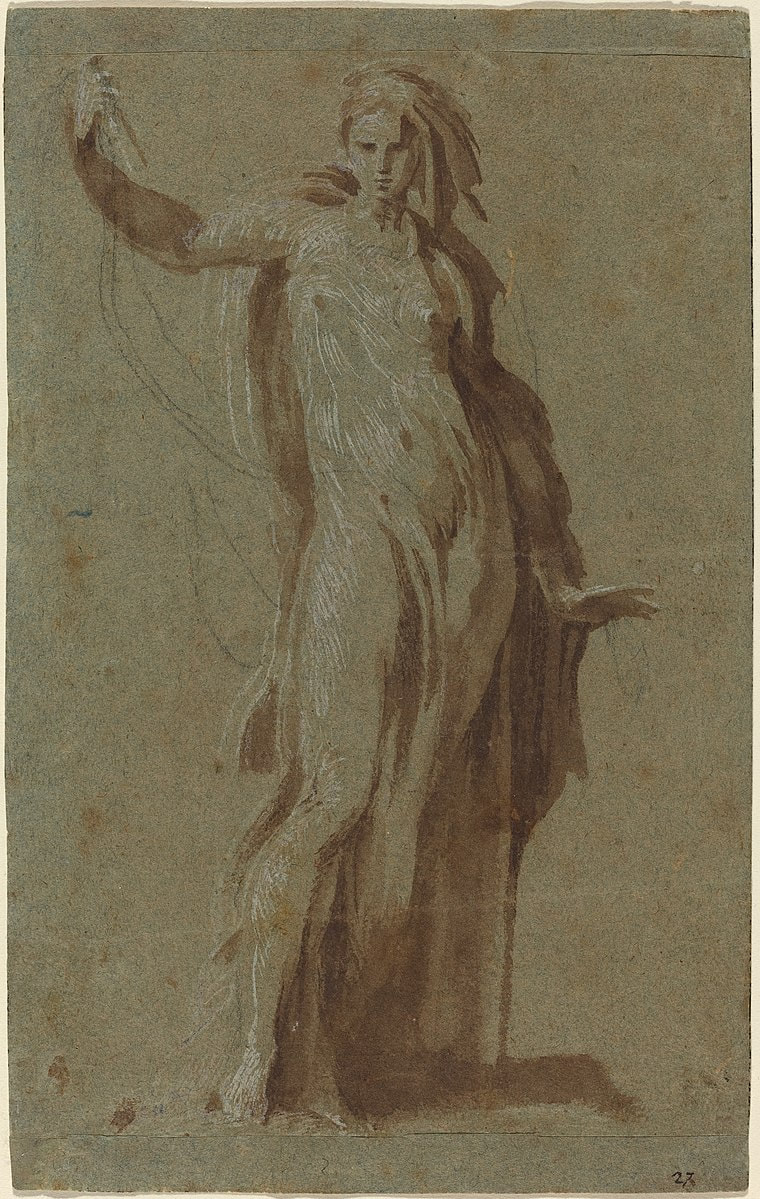
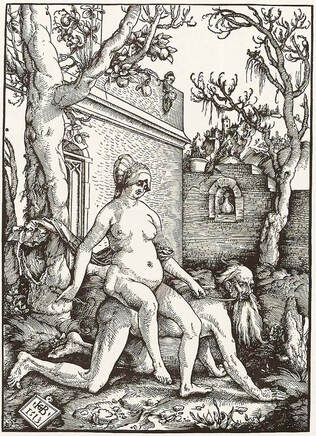
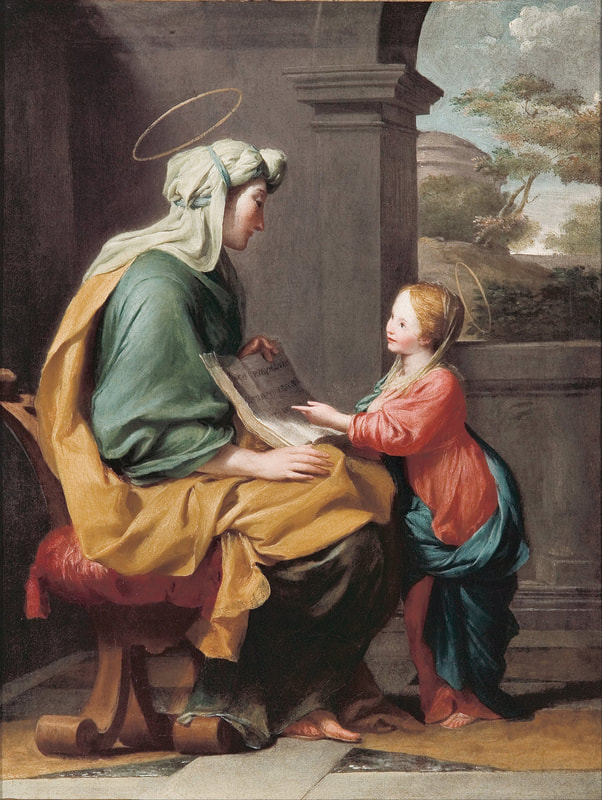
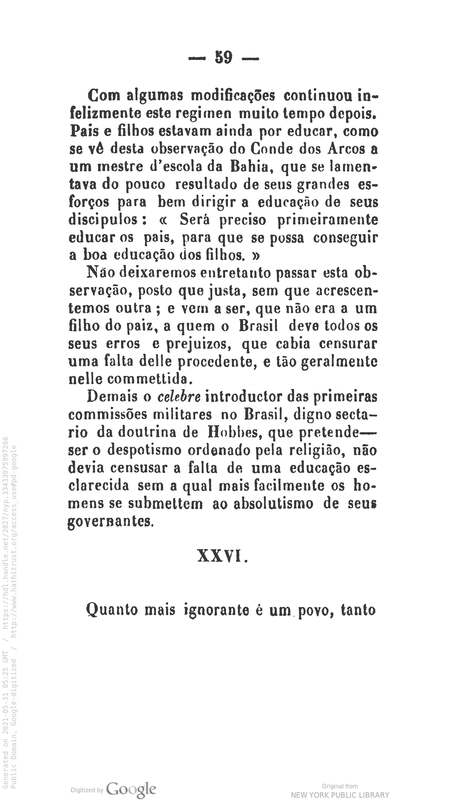
 RSS Feed
RSS Feed